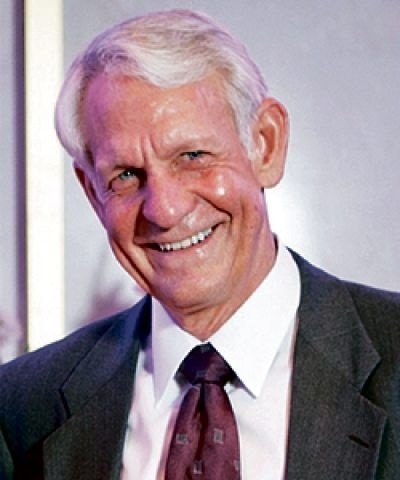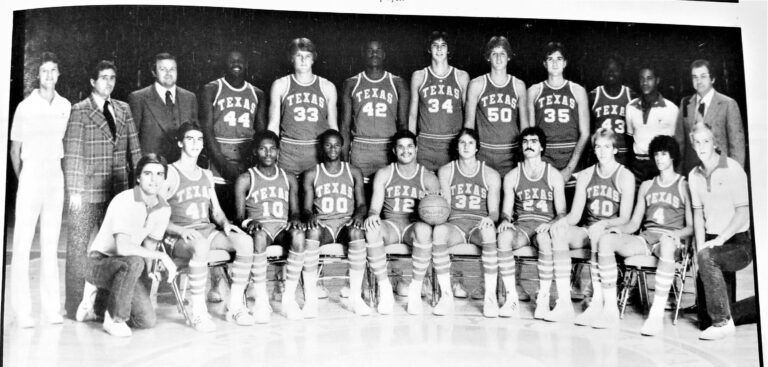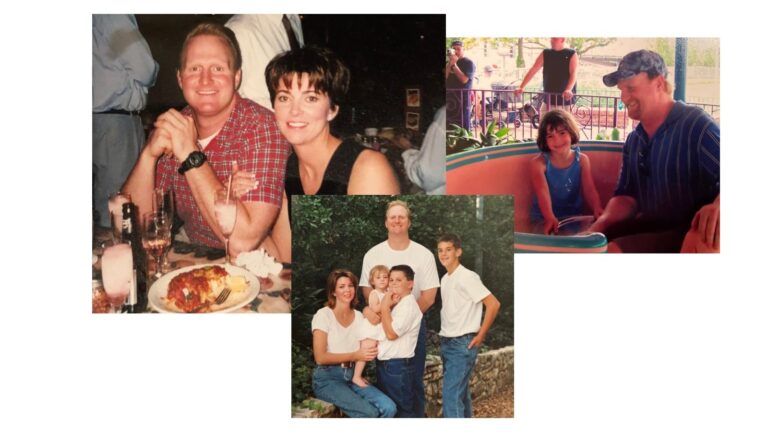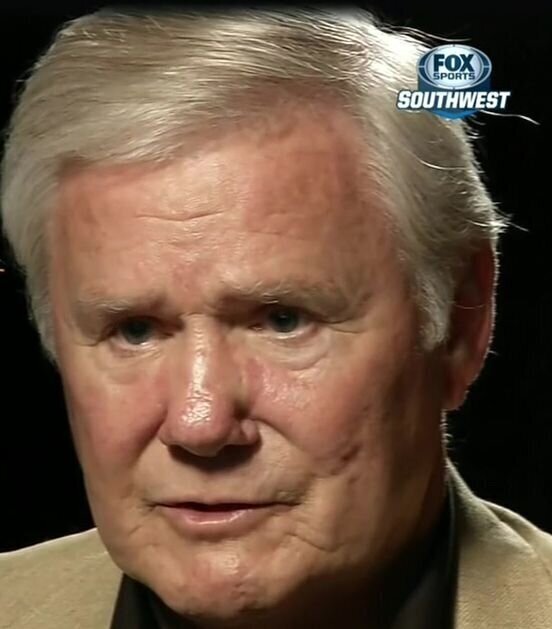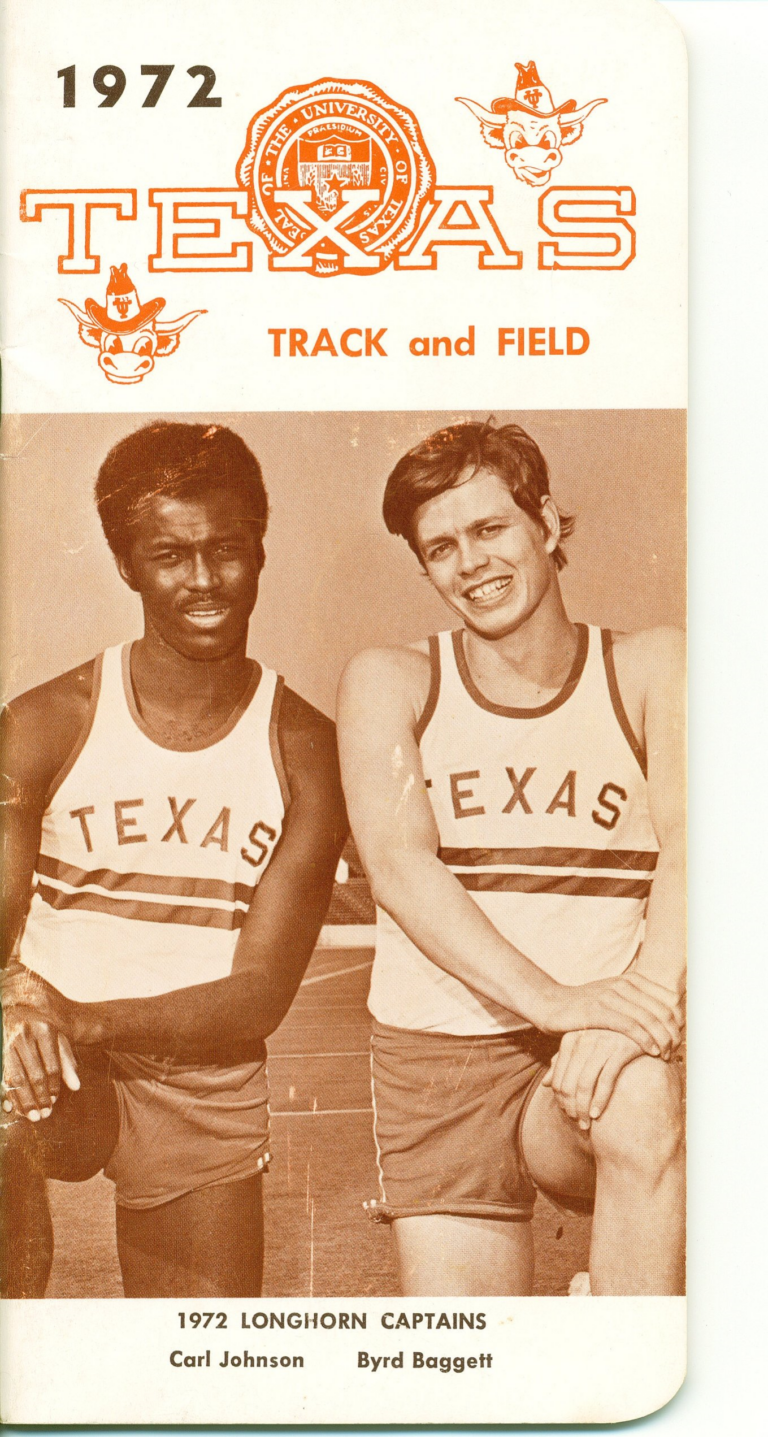2022 Deryl Comer
Deryl Comer recently passed away on October 6, 2022.
Deryl recently passed away, and like the passing of Steve Worster in September 2022, sorrow overwhelmed me.
Deryl Comer’s hands were like football magnets. Soft lobs and Heat-seeking passes searched for his hands. Deryl could convert a complicated route, bad pass, and challenging catch into a Picasso art form.
He was an intelligent and voracious reader. I was not, but he convinced me to read J.R.R. Tolkien’s Celebrated Trilogy: The Lord of the Rings.
A SPECIAL FOOTBALL MOMENT FOR DERYL COMER
A SPECIAL FOOTBALL MOMENT FOR DERYL COMER
In the 1968 Texas-OU game, James Street hooked up with tight end Deryl Comer for pass completions of 18, 21, and 13 yards. Texas won at the last minute of the game.
Royal said we “completed the same pass six or seven times in that long drive.” “Street kept throwing to our tight end, Deryl Comer.” “We read their linebacker. Our tight end just ran across or hooked, depending on which direction their linebacker moved. That pass got us down close, and then we knocked it in.”
Deryl was pro football material until a severe knee injury required an extended time in rehab. He never fully recovered from the injury. Deryl missed the 1969 national championship season, but he played for the 1970 national champions. He averaged 15.1 yards per catch for 1967, 1968, and 1970.
Larry Bob Moore
Fri 10/21/2022 8:47 PM
I’m really sorry to learn of Deryl’s passing. I remember hearing about him as a HS player and was thrilled when he signed with the Horns.
Texas-OU 1968
Royal said ”We must have completed the same pass six or seven times in that long drive,” Royal said. ”Street kept throwing to our tight end, Deryl Comer. We read their linebacker. Our tight end just ran across or hooked, depending on which direction their linebacker moved. That pass got us down close, and then we knocked it in.”
Chris M. Keegan played Deryl Comer in the movie “My All-American”.
He averaged 15.1 yards per catch for 1967, 1968, and 1970 .
Royal’s Purge – Spring training of 1968
The year of the Wishbone started with a reign of terror by the coaching staff that author J. Brent Clark said resulted in “30 players quitting and 30 injuries “. Then, Cotton Speyrer says, “Royal made it clear that the spring of ’68 would be a living hell. The rigor, the regimen, the contact, and the competition would push players to the limits.”
Deryl was All SWC in 1968.
So many players were quitting that the media wire services hinted that there was dissension on the team. Worster fan the flame, saying the team “was not unified.” Worster retracted his statement, but the harm was done. Royal said, “Most of the kids who quit were 6-4 season players who had been beaten out. But, Deryl Comer was the only one that shocked him. Royal says, “Deryl came in one day and said, ‘Coach, I’m just tired of football. I don’t like to play it anymore. I’ve been playing all my life because other people wanted me to.’ So Comer left. I was sick”. Jones Ramsey, the UT publicity man, said of Deryl Comer, “In four different positions, he’d be the best we have.” Royal continues, “Deryl was one of our best. But a day later, he was back. He just returned and said he couldn’t understand why he left, and he’s been great. His catches helped us beat Oklahoma.”
Deryl Comer’s surgery post-operative rehabilitation on his knee was not complete, and he was red-shirted. Randy Peschel and Tommy Woodward replaced him in the lineup.
1969 – DERYL COMER’S INTERVIEWS ARE HILARIOUS.
Unless you are from the late 1960s era, these short blurbs of interviews by Cactus Pryor around the time of the 1969 Big shoot-out may not be interesting, but for many others they will bring a smile to your face. Deryl Comer is hilarious in his answer to an unknown question about counting.
These extremely quick interview cuts feature assorted Longhorn football players, coaches, team personnel, and extended family members. This footage was filmed around the “Game of the Century”—the December 6, 1969, contest between UT and the Arkansas Razorbacks, ranked #1 and #2, respectively, at the time. Texas won the game and went on to beat Notre Dame in the Cotton Bowl to secure the National Championship. The interviewer is Cactus Pryor, a legend in Texas broadcasting.
WILLIAM COMER OBITUARY
COMER, JR., William Deryl William Deryl Comer, Jr. passed away peacefully in his sleep on October 6, 2022 at age 75 in Dallas, Texas. Deryl was born on April 5, 1947 to William Deryl Comer, Sr. and Anne Williams Comer. Deryl was a successful real estate investor in Dallas for more than 40 years. He attended Highland Park High School where he discovered his love for football. He went on to play tight end for the Longhorns at the University of Texas from 1967 to 1971. He was a dedicated husband, |father, grandfather, brother, friend, and mentor to many. He will be remembered for his kindness, humor, charm, and infectious laughter. He loved to read and was happiest sitting on a pier in Rockport, Texas with a fishing pole in his hand. He will be greatly missed by all who were lucky enough to call him family or friend. He is survived by his partner of 39 years Kym Comer, two daughters; Kathryn (Andrew) Tubb of Dallas, Texas, and Carolyn (James) O’Brien, of Houston, Texas. He is also survived by two grandchildren, Corrine and James Tubb, brothers Harry Comer, Corbitt Comer, sister Diana Comer, and many cousins, nieces, and nephews. In lieu of flowers, memorial donations may be made to the Friends of Samuell Park 6200 East Grand, Dallas, Texas 75201.
Professor Carlson remembers Deryl Comer.
Deryl Comer was one of the guys of his era who was highly touted for athletic ability. If not for a severe injury, he might have had a pass-catching career like Pete Lammons. The pros took a chance and drafted him late, even in spite of that debilitating injury he fought back from. Long before Texas tight end Blaine Irby (UT 2007-2011) sat out what seemed like eons, then made a brave comeback that defied odds, Comer built the template for that.
One of Deryl’s former UT teammates told me that he had hands “like magnets.”
After making the All-Southwest Conference team in ’68, he missed the entire magical 1969 championship year. Who knows, maybe he would’ve been James Street’s target, instead of Randy Peschel, for that legendary pass that essentially beat Arkansas.
Comer made it back in 1970, playing for a national champion, after all.
HORNS UP FOR A GREAT TEAMMATE




